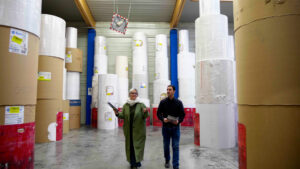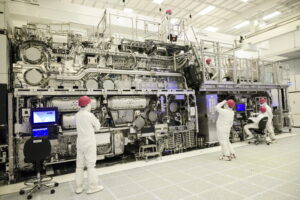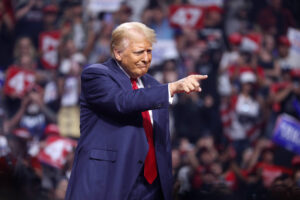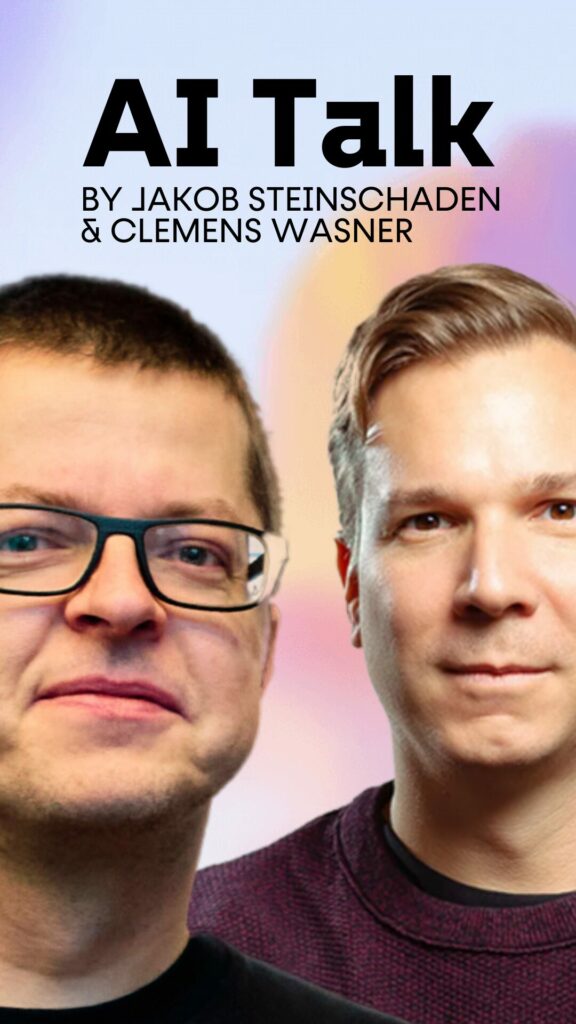CryptoKitties: „We Want to Bring a Billion People to The Decentralized Web“

If you are into blockchain AND cats, you might have heard of CryptoKitties. It is as much hyped game in to crypto community that lets you breed and collect unique digital cats, and the rules of the game are baked right into the blockchain. The company behind it, the Canadian company Axiom Zen, made CryptoKitties to one of the most used dapps on the Ethereum blockchain – and even slowed down this blockchain as trading of the digital cats exploded in late 2017.
Now, as the cryptocurrency hype has worn off a bit, CryptoKitties is still there. The team of CEO and co-founder Roham Gharegozlou has got $12 million of big name investors Andreessen Horowitz and Union Square Ventures instead of doing an ICO.
At the TEDx Vienna conference, I sat down with Gharegozlou to talk about the future of CryptoKitties, the evolution of blockchain and why games are the best way to explain the decentralization to everyday people.
Trending Topics: Your company Axiom Zen started CryptoKitties in 2017. What happened so far?
Roham Gharegozlou: It’s going well. We had a huge launch and a very speculative bubble formed very early on. That corresponded with the cryptocurrency bubble. But then we found a cool group of core users, and we had a year of a lot of fun with them. There were over a million cats created and there are now more than 50 products that are built on top of the CryptoKitties. They are starting to show how that universe could look like.
Let’s go back to the start. Why did you choose to do CryptoKitties, instead of dogs or other things?
Well, cats rule the internet. I´m a real dog person, but a digital cats person. The reason we created a game is: we were fans of decentralization of the internet a long time but the concepts are so difficult to explain and so alien to most people. So we decided to bake these concepts into a game to make it fun and friendly and cultural. The same way Bitcoin is scarce with 21 million, we created only 50.000 of these kitties. we baked the rules of the game into the blockchain as well.
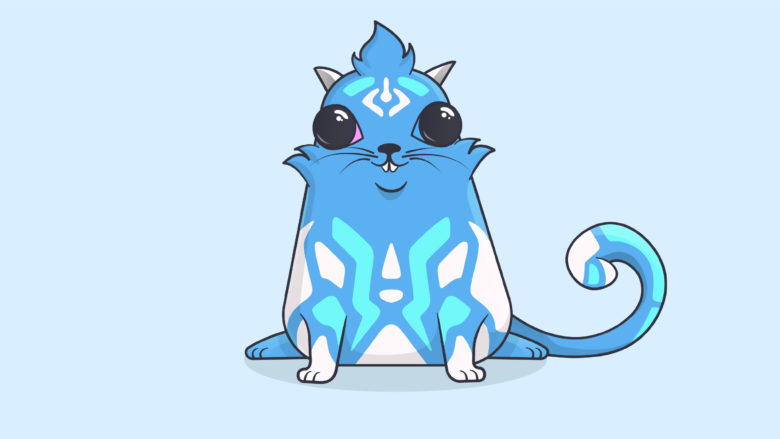
That sounds like it is a trial for a bigger product.
Yeah, perhaps. We are building a lot of things around the digital tokens that are the cats. Our objective is to bring a billion people to the decentralized web. There are a lot of barriers to make that happen, and so a lot of our focus is on learning what is special about this technology to appeal to everyday people and what is stopping them from engaging with it. In particular, we focus a lot on the user interface and on the design and how it really feels to really truly own something as opposed to a video game where you are paying but you don’t really get something.
CryptoKitties is the most used Ethereum smart contract. How many users do you have?
There are around 77.000 users that have at least one cat. On a daily base there are about 400 to 1.000 people that come in and buy or sell the cats. and there are many more that manage their collections or breeding their kitties. Early on a lot of people thought it is about buying cats cheap and selling them high. But in reality it is much more like a choose-your-own-adventure-sandbox, more like an art project than anything else. The majority of our users are buying cats that they think are cool and breeding them together with other kitties. You can create your own breed, there are 4 billion possible combinations.
What is happening is that third-party-developers are building products around the core game. You can turn a collection of cats into a collectible card game, or you can buy items as accessoires for your cats.
On stage at TEDx Vienna you talked about true ownership in the digital age through the blockchain. I understand that it works for CryptoKitties, but how it should it work for music or video?
You could theoretically bake in certain media into the blockchain, but you are right. But what the blockchain allows is ownership over things that you could never own before – which is software. You could imagine a world where the artist directly links to the listener who pays per play. The software would be completely decentralized, so you wouldn’t need iTunes and stuff like that. And you would also have the licensing agreements on an open blockchain marketplace.
To make that happen, we will have sign up record labels, find artists and explain it to the users. There are so many layers that have to come together at exactly the right time. That won’t happen for years to come. So the best place to start with a new platform is one that doesn’t have anything connected to it. But you could imagine that five, ten years from now all of these middlemen in music or in movies being replaced by computers and efficient marketplaces.
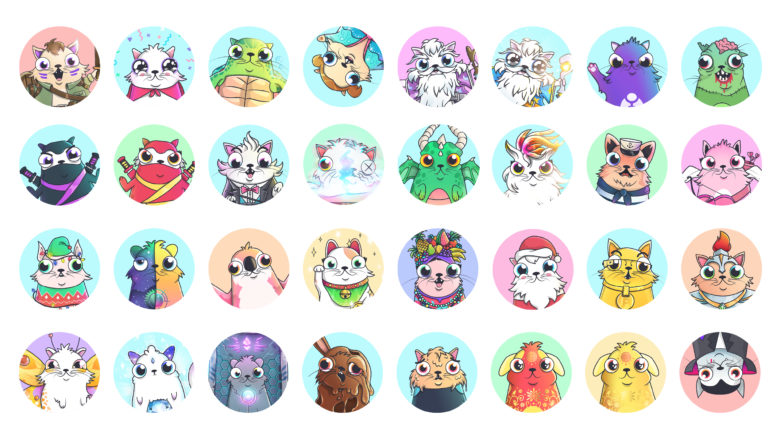
That´s the digital world. But how should that work in the analog world, with diamonds for example?
Anything that is non-digital requires a trusted third party. I have to trust the person that enters the information into the blockchain. But you could imagine that in the future you will have hardware that is verifiable from the start. That is very complicated.
For CryptoKitties, you have chosen Ethereum as a platform. Now there is a race going on between Ethereum and other blockchain projects like EOS to become the best platform. Which of these platforms will be the winner?
Right now there is no credible competitor to Ethereum. All of the others are compromising things that we think the should not. EOS compromised decentralization to just 21 block producers. And these block producers have already proven to be cartells. Most of the other similar blockchains to Ethereum are faster simply because they are less crowded. Right now Ethereum presents the best balance between usability and decentralization. But a lot of people are working on cross-blockchain technologies.
CryptoKitties got big investors like Andreessen Horowitz or Union Square Ventures. What do these investors expect from you?
My investors recognize that we are early on in this space and have a variety of different opportunities. As a team, we are very well placed to create consumer goods, things that people love to use. Today, that is a lot about games and entertainment.
But will you stick to the games industry or move on?
In the early days of every platform shift, games and entertainment are usually the way to understand the behaviour of that platform. Solitaire teached us Click&Drag, Minesweeper teached right-click, Angry Birds teached the flicking mechanism, or Doodle Jump teached the accelerator. Games are always the best way to teach new behaviours. Decentralization is such a complex world, so I think in the next years games are the thing that people will actually understand about decentralization. But very quickly after that it will be like: OK cool, my cat game works really efficient, why can’t I have that in the real life?
Part of our hope is to show the consumers that there is an alternative and then leading them to projects that very smart people are working on. But the world is less ready for them.
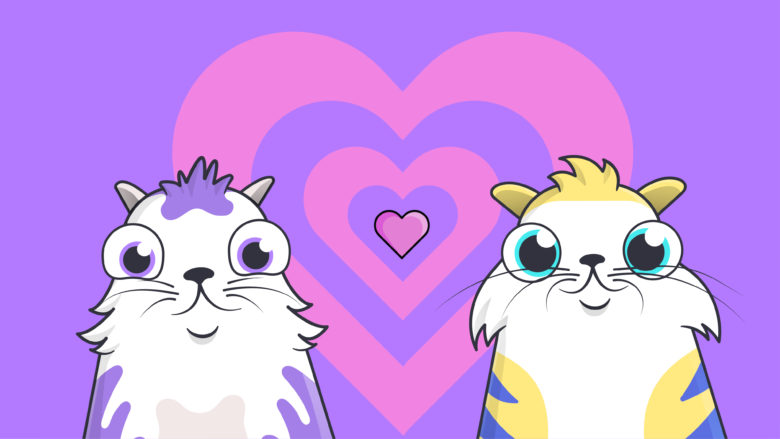
Apart from games, where do you see the biggest potential for blockchain technology?
Anything that is a marketplace. Everything that has intermediaries can be disintermediated. But I think the financial sector recognizes that it is a danger and it is moving fast do adopt it and benefit from it. Decentralzation is happening since decades. The internet decentralized the supply of information, Airbnb decentralized the supply of accommodation, Uber decentralizes the supply of transportation.
But all of them centralized demand. For two reasons: You used to need central servers to run software, but that is not true anymore. CryptoKitties runs without us. And the second reason is: You needed central organisations for trust, like Airbnb. You just haven’t got time to get to know every host in the world.
The hardest part is not the software, it is bringing the humans together an teaching them how to use it. So get a long answer short: I think gaming and finance in the short run and in the long run billions of people will be hitting for blockchain everyday for every single task in their lives that requires connecting with another person and an efficient marketplace. And the most efficient marketplace will be the most open one.
Facebook, Google, Baidu, Alibaba – all these big intermediaries, these big centralized platforms are working with blockchain. Isn’t that contradictory?
It makes sense for them in multiple ways. They are very smart people and they always want to be at least trying out the new thing to make sure to take advantage of it. Having a brand is still valuable. Even in the blockchain world, at day one nobody has trust. If a brand moves into the blockchain early, they can start to build up reputation, and because they are first movers, they will win the platform. If they move to late and let others build a reputation, the value of the blockchain reputation will be greater than the value of their brand.
If I had a brand, I would be jumping into the pool with both feet. Worst case it doesn’t matter and I wasted a little bit of capital. But best case is you stake your ground early. Consumers at the end of the day want to use things that feel familiar to them, things that they trust.

Crypto has seen better days. Will there be another hype?
Last year there was too big of a party, and so there os sort of a hangover. The hype really got ahead of the technology, the promise got ahead of the reality. But so many interesting things happened this year.
We try to isolate us from these ups and downs, we raised funding through traditional methods, we did not do an ICO. Everyone associates this industry and Bitcoin with money laundering and price speculation, and this is hurting the industry.
When you wake up, is your first look at CoinMarketCap?
A few years ago yes, but not anymore.




